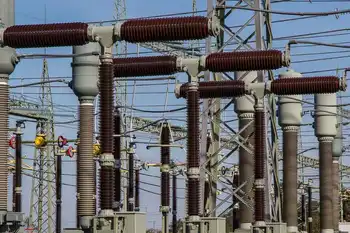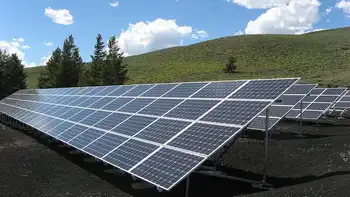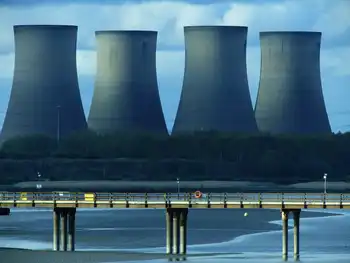Japanese power firms fall short of emission goals
Despite poor utilization of carbon-free nuclear plants, weak power sales due to the economic slump helped the power sector to reduce CO2 emissions by 5 percent in the business year to March 2009. Electricity demand is seen staying sluggish for now.
But falling power sales alone would not be enough for the sector to meet its carbon intensity goals — each power firm has a target to emit 20 percent less CO2 per kilowatt hour than the 1990 levels on average in the five years to March 2013.
Those targets, although not legally binding, have become a core part of the Japanese government's commitment under Kyoto.
Japan, the world's fifth-biggest emitter, has promised to reduce greenhouse gas emissions by 6 percent below 1990 levels over 2008-2012, the period covered by Kyoto.
The power sector accounts for about 30 percent of the nation's emissions.
Some improvement is seen in nuclear power output this year, though events can prove unpredictable. An earthquake on August 11 forced Japan's third-biggest utility Chubu Electric Power Co to halt operations at its sole nuclear plant near Tokyo.
In addition, a shortfall in delivery of carbon credits could easily spoil their plans, analysts and company officials said.
"Most of them have bought almost 100 percent of the credits they planned to buy from abroad," said Akira Saito, a manager at Mizuho Information & Research Institute.
"But nuclear usage is always a risk. Also, the risk of less delivery of contracted CERs means it's too early to say they don't have to buy any more credits from abroad."
Tokyo Electric Power Co, Asia's biggest utility, is soon to start commercial operations of one of the seven reactors at its Kashiwazaki Kariwa nuclear plant, the world's biggest, more than two years after it was damaged in an earthquake.
But restarting one or two Kashiwazaki Kariwa reactors, even if they continued running throughout the year, would not be enough for the company to meet its target, said Takayuki Akiba, a TEPCO spokesman.
"We should operate the other nuclear plants effectively and further improve energy efficiency at thermal plants. Certainly, we'll take advantage of Kyoto's market mechanisms," he said.
Japanese power companies have been actively involved in early investment in emission-cutting projects in developing countries.
Once approved by the United Nations, these generate carbon credits called Certified Emissions Reductions (CERs). Delivery of such CERs, however, is not fully secured as projects progress.
The sector has procured a total 190 million tonnes of carbon credits from abroad, according to data released in September by the Federation of Electric Power Companies of Japan.
Most of them are believed to be such CERs.
Asked if TEPCO has followed the Japanese government's example in buying a more delivery-secured type of Kyoto-backed carbon rights, called Assigned Amount Units (AAUs), from developed countries, or will do so, Akiba declined to comment.
But he said: "In general, we think it's worth countries (which have agreed to sell AAUs) implementing emission-cutting projects and other such steps to benefit the environment."
Even Kyushu Electric Power Co, which met its target last year, said it would keep counting on credits from abroad.
"We've procured only part of the credits we planned to buy," said Ryoji Nakamuta, a Kyushu spokesman, adding that Japan's fifth-biggest power firm planned to offset its emissions with 11 million tonnes of credits over the five-year period.
Related News

TTC Introduces Battery Electric Buses
TORONTO - The Toronto Transit Commission (TTC) has embarked on an exciting new chapter in its commitment to sustainability with the introduction of battery-electric buses to its fleet. This strategic move not only highlights the TTC's dedication to reducing its environmental impact but also positions Toronto as a leader in the evolution of public transportation. As cities worldwide strive for greener solutions, the TTC’s initiative stands as a significant milestone toward a more sustainable urban future.
Embracing Green Technology
The decision to integrate battery-electric buses into Toronto's transit system aligns with a growing trend among urban centers to adopt cleaner,…




